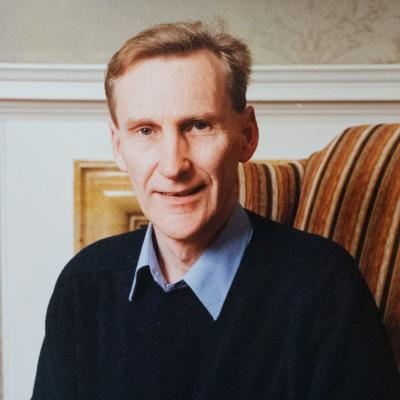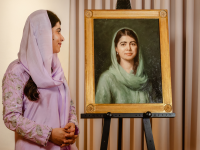
LMH is very sad to announce that Professor David Andrews has passed away suddenly after a short, unexpected illness on the 1st March 2022 at his home in Dorset.
David Andrews joined Oxford Physics and Lady Margaret Hall as a University Lecturer in 1989, having done his PhD in Mathematics at Cambridge, then worked as a University Lecturer at Reading University, followed by a period of postdoctoral research at the Massachusetts Institute of Technology in Boston and the University of Princeton in the States to broaden his experience. He returned to the UK to a Royal Society Meteorological Office Research Fellowship in the sub-department and at St Cross College Oxford. He was an atmospheric physicist focusing on atmospheric dynamics, with particular seminal contributions to the theory of wave, mean-flow interactions, which transformed our understanding of the stratosphere and has since been influential in understanding the dynamics of the oceans, the rest of the Earth’s atmosphere and atmospheres of other planets.
His accomplishments within the field of Atmospheric physics were many and earned him the respect of his colleagues. His book, “An Introduction to Atmospheric Physics” was valued by undergraduate and graduate students alike. He also published a graduate textbook ‘Middle Atmosphere Dynamics’ with J.R. Holton and C.B. Leovy that became (and remains) the ‘go-to’ textbook for anyone doing stratosphere-related research. There were many effusive praises by his former graduate students who had read and studied with this text during Professor Andrews’ retirement dinner. It is a text that will remain seminal to the teaching of Atmospheric physics for some time to come and is even more relevant in these times, where understanding the Earth’s climate demands an understanding of Atmospheric physics.
David took over as Head of AOPP in 2000 and became Professor in 2004, serving as head of AOPP until 2008. He formally retired in 2012 but continued as Chair of Examiners in Physics, in his own words, ‘to spare his more active colleagues’, before finally leaving the University the following year. In 2013 he and his wife Kathleen moved to Dorset.
David Andrews was a college tutor who truly cared about his students. He wanted all of them to excel and learn as much about physics as they could. But he also very much wanted to support them in other ways because he understood very well that the learning process requires more than merely going through the problem sets. He would often take both struggling students, and excellent students, in individual tutorials in order to either help them as much as he could, or to extend their studies well beyond the course syllabus. He was the tutor they turned to often for advice and help, both within the course and on other matters.
His commitment to teaching also extended to our visiting students as well. During his time as a tutor, and with Professor Huffman’s help, Physics at LMH expanded to include visiting students from other physics programmes nearly every year. Professor Andrews felt it was important that our visiting students be as fully integrated in the tutorial system as possible. He believed that the tutorial system was not only one of the best ways to learn a subject, but also that its near uniqueness at Oxford is what attracts visitors and so, wherever possible, they were integrated within LMH’s normal tutorial structure.


